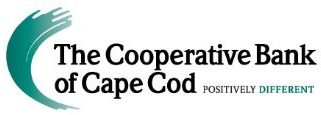Business confidence in Massachusetts recovered slightly during November amid a swirl of contradictory economic indicators ranging from agitated financial markets to international trade tensions to steady-but-slowing growth in the Bay State.
The Associated Industries of Massachusetts Business Confidence Index (BCI) gained 0.6 points to 61.6 in November, ending a three-month slide that brought confidence to its lowest level in more than a year.
The November reading was one point lower than in November 2017 and 2.5 points lower than at the beginning of the year.
Increased optimism about the state and national economies balanced employer concerns about their own operations and hiring plans during November. The reading remained well within optimistic territory, but employers also clearly see risk on the horizon.
“The survey reflects the uncertainty facing employers amid a still-strong state and national economy,” said Raymond G. Torto, Chair of AIM’s Board of Economic Advisors (BEA) and Lecturer, Harvard Graduate School of Design.
“Employers are increasingly confident in the economy but less so in the prospects for their own companies and in their own hiring plans. Economic growth remained at a solid 3.3 percent in Massachusetts for the third quarter, but that was a slowdown from earlier in the year. Payroll employment was up for the quarter but weakened in August and September.”
One employer who participated in the survey summarized the uncertainty:
“We are up double digits, but tariffs are negatively impacting our … prices and lead times. Looking forward to more stable times.”
The AIM Index, based on a survey of Massachusetts employers, has appeared monthly since July 1991. It is calculated on a 100-point scale, with 50 as neutral; a reading above 50 is positive, while below 50 is negative. The Index reached its historic high of 68.5 on two occasions in 1997-98, and its all-time low of 33.3 in February 2009.
The Index has remained above 50 since October 2013.
Constituent Indicators
The constituent indicators that make up the overall Business Confidence Index were mixed during November.
The Massachusetts Index assessing business conditions within the commonwealth rose 2.4 points to 67.1, leaving it 1.9 points higher than in November 2017.
The U.S. Index gained 2.1 points to 63.7, up 1.5 points from a year earlier.
The Company Index measuring employer assessments of their own operations dropped 0.4 points to 59.2, down 3.1 points year-to-year. The Employment Index slid 3.8 points for the month while the Sales Index was up 2.3 points.
The Current Index, which assesses overall business conditions at the time of the survey, fell 0.7 points last month to 62.6 and 0.8 points for the year. The Future Index, measuring expectations for six months out, gained 2.1 points for the month and lost 1.1 points for the year.
Manufacturers (62.4) were slightly more optimistic than non-manufacturing companies (60.8), reversing a trend that has existed for most of 2018. Companies in the eastern part of Massachusetts (64.0) were significantly more bullish than those in the west (58.5).
Large companies (62.3) and medium-sized companies (62.4) registered higher confidence readings than small companies (59.7).
Michael A. Tyler, CFA, Chief Investment Officer, Eastern Bank Wealth Management and a member of the BEA, suggested that the wide swings in employer views of the overall economy and their own prospects may reflect growing discomfort with some emerging trends.
“Employers remain generally optimistic about a Massachusetts economy running at 3.5 percent unemployment and a growth rate of more than 3 percent. At the same time, the slowing housing market, rising interest rates, and continued uncertainty about trade are clearly causing concern,” Tyler said.
Post-Election Economy
AIM President and CEO Richard C. Lord, also BEA member, said employers at least have a clearer view of the political landscape now that the 2018 mid-term elections are completed.
“The prospect of divided government in which Democrats will control the US House of Representatives and Republicans the Senate and the White House provides some assurance to employers who do not relish policy lurches to the left or right,” Lord said.
The monthly Business Confidence Index, initiated by AIM’s Board of Economic Advisors in July 1991, is based on a survey of AIM member companies across Massachusetts, asking questions about current and prospective business conditions in the state and nation, as well as for respondents’ own operations. On the Index’s 100-point scale, a reading above 50 indicates that the state’s employer community is predominantly optimistic, while a reading below 50 points to a negative assessment of business conditions. A number of component sub-indices are derived by analyzing responses to selected questions or those of particular groups of respondents.
Employer Confidence Ticks Up in November





















